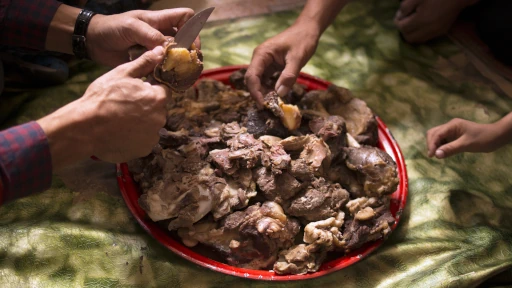Opinion Editorial Archive September, 2023: Beyond Meatings

If you're like me, you've attended your fair share of pointless meetings. We have known for a long time that these meetings should stop. After last month, so too does the rest of the world.
The media went into a frenzy last month over a meeting that didn't happen. Two social media moguls were supposed to meet to settle old scores in a modern-day duel. Farcical from the start, had the meeting taken place it might have been the most spectated event of the decade.
The "Pointless Meeting of the Month" award went to the one held last month in Belem, Brazil. It was also about a fight. The Amazon Cooperation Treaty Organization comprises the eight countries that share the Amazon Rainforest. They are fighting to save it. Yet they failed to agree on the key milestone of ending Amazonian deforestation by the end of this decade. That was despite a large group of indigenous activists from the Amazon having gone to Belem to persuade them to do just that.Out of context, their failure may not be catastrophic. But most Amazonian deforestation will continue to be done in the name of fossil fuel extraction and large-scale cattle farming. We have known since the 1971 publication of the seminal book Diet for a Small Planet that cattle farming is not the most efficient use of land for providing food. (We have known the same about fossil fuel extraction since around the same time.)
Despite these timeframes, we have not moved our diet beyond meat — even though anthropological observations and other studies confirm that we do not need to consume as much meat as we presently do. And the global population is now much larger than it was in 1971.
One company that has tried to move us beyond meat in the last few years is called Beyond Meat. Last month, that company reported disappointing second quarter financial results. Among the reasons it cited was reduced consumer demand for plant-based meat substitutes.
The situation is more complex than just reduced consumer demand though. A study published last month in the journal One Earth found that the entire political and economic landscape in the US and the EU is tilted strongly in favor of the cattle and dairy sectors. For example, EU farmers receive 1,200 times more public funding than their plant-based meat competitors. If numbers like that are familiar to you, you probably recognize them from the fossil fuel sectors. It takes many meetings to establish such numbers.
This month's photo was taken in Mongolia. There, the diet is very heavily meat based. That is not due to consumer demand though. Mongolia has mostly arid, almost barren land. Most plant-based food is imported. So, the tradition of eating meat "five fingers" style, as demonstrated by the indigenous Kazakh people in this photo, is commonplace.
Ironically, only a few days after the meeting in Belem, the people of one of the member countries, Ecuador, voted to halt oil extraction in an area of its Amazon Rainforest. Their decision will help protect the area's indigenous communities. It also shows how political leaders can be out of touch with the will of their people.
At the present rate of deforestation, most of the Amazon could soon become as barren as Mongolia. It will then be too late for pointless meetings. In the meantime, we can use the time we waste in pointless meetings to learn instead about demand-side economics. That can positively impact one of our most precious resources and can help show our solidarity with global indigenous peoples.
If you enjoyed reading this month's opinion editorial, please consider supporting independent, advertising-free journalism by buying us a coffee to help us cover the cost of hosting our web site. Please click on the link or scan the QR code. Thanks!

